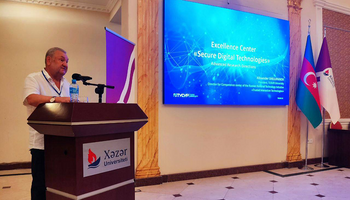Project by TUSUR researchers to improve efficiency of heart surgeries
The project is developed by the joint effort of TUSUR, Siberian State Medical University and Research & Production Company Biotok.
Supported by the Russian Foundation for Basic Research in 2013, the project focuses on developing advanced methods for minimally invasive surgeries on patients suffering from cardiac arrhythmia. It means that they do not require thoracotomy, but are performed using catheters where electrodes are inserted through vessels to identify the cause of arrhythmia and treat it. This method has first been used over 15 years ago and is commonly believes to be efficient for mild forms of cardiac arrhythmia. However, it has become apparent that the method is essentially useless for more severe conditions, such as atrial fibrillation, that are especially common among older patients.
“Atrial fibrillation means that there is desynchronized contraction of some part of the heart, that may provoke cardiac arrest or a stroke", - says Nikolai Fedotov, head of Safe Biomedical Technology Laboratory, TUSUR Institute of Systems Integration and Security. “It is rather difficult to diagnose what causes desynchronized atrial contractions. Neither Russian, nor foreign scientists have succeeded in doing so. That is why the catheter method has proven to be ineffective: if we can hardly find the focus of disease, we can’t treat it. In such cases, surgeons have to resort to the open-chest surgeries”.
For this purpose, TUSUR researchers rely on their long history of joint projects with the experts of Biotok and healthcare professionals.
"We will create a 3-D model of atrials detailing all the real changes that our colleagues from the Medical University make during surgeries. After that we will study this model, identify regular patterns using our patented methods, develop the procedure for identification of the source of arrhythmia and then test our findings in practice", - adds Nikolai Fedotov.
The project will continue for three years. The result will be a new surgical apparatus that will be used to locate atrial irregularities during surgeries.
“All the participants are very interested in this project", - says Alexander Shelupanov, TUSUR vice Rector for Research and head of the project. “The cardiovascular mortality rate in Russia is over 1 million people a year. Our project will make it possible to offer an alternative to the conventional open-chest surgeries for the more severe diseases.”

.png)


